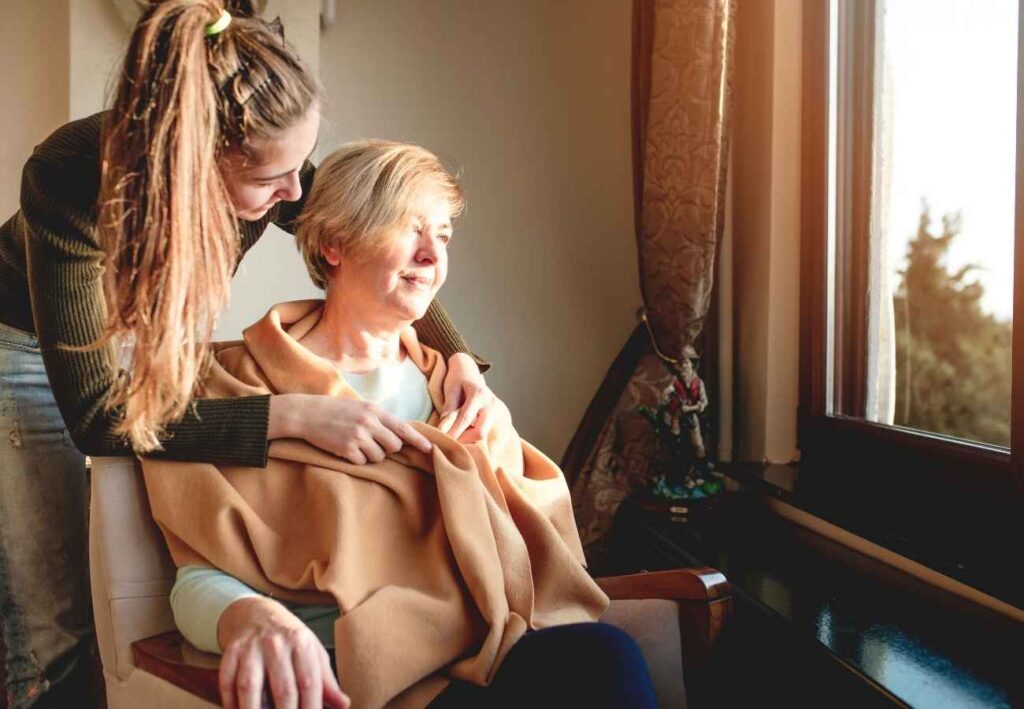Appreciating Caregivers: The Unsung Heroes of Elder Care Homes
There is a calm corner in the world where people who are heroes wear patience, compassion, and an unsh dedication to others instead of capes despite the ongoing chaos around them.
Here, in the core of elder care homes, caregivers move in unison with compassion and understanding. We’ll shed light on these unsung heroes on this article.
Are you a caregiver working hard for the well being of seniors in elder care homes? Or are you looking for ways to support a friend who is a caregiver? Then you’ve come to the right place! This article, is about the complexities of their jobs, the difficulties they encounter, and the reasons that honouring and valuing caregivers is not just a choice but also a necessity.
Caregivers: The Pillars of Support for the Elderly
Understanding the Role:
Caregivers in elder care homes are the silent architects of a warm and nurturing environment. Their responsibilities go much beyond the conventional boundaries of caregiving. They grow to be confidants, friends, and, in many cases, the extended family of the people they look for. Caregivers provide not only physical assistance but also emotional support, ensuring that the elder care feel loved and valued. They play a crucial role in maintaining the overall well-being and quality of life for the elder care residents. Without their dedication and compassion, elder care homes would not be able to provide the level of care and comfort that is needed for the ageing population.
A Day in the Life:
Imagine a day where every action is not just a task but a gesture of love. From helping with daily activities like dressing and meals to providing emotional support and companionship, caregivers navigate the complex dance of meeting physical and emotional needs. They ensure that each resident feels valued and respected, creating a warm and nurturing environment. Whether it’s engaging in meaningful conversations or organizing recreational activities, caregivers strive to enhance the overall well-being of the elder care residents, promoting a sense of purpose and fulfilment in their lives.
The Challenges They Face:
The challenges of providing care are as great as the rewards. A caregiver’s journey often involves emotional toll, physical strain, and the ongoing need to strike a balance between professionalism and empathy. In addition, caregivers may also face challenges such as managing the complex medical needs of elder care residents, navigating difficult family dynamics, and adapting to ever-changing care plans. Despite these challenges, caregivers remain dedicated to providing the best possible care and support for the elder care residents they serve.
Recognizing Caregivers Beyond the Surface
Emotional Resilience:
Caregivers are the emotional pillars for the elder care residents. They provide consolation, an understanding ear, and an environment in which all feelings are accepted and valued. Caregivers also play a crucial role in helping elder care residents cope with the emotional challenges that come with ageing, such as loneliness, loss of independence, and grief. They create a safe and nurturing space where residents can express their emotions and receive the support they need to navigate these difficult experiences. This emotional resilience is essential in fostering a sense of belonging and well-being among elder care residents.
Adaptability and Flexibility:
Caregivers need to be flexible since the aged care industry is always evolving. With flexibility and adaptability, they negotiate a range of different personalities, medical issues, and family relationships of the senior citizens. By being adaptable, caregivers can effectively respond to the changing needs and preferences of elder care residents, ensuring that they receive personalized and quality care. Additionally, their flexibility allows them to quickly adjust to any unforeseen circumstances or emergencies that may arise in the caregiving process.
Creating a Home Away from Home:
Elder care homes are not just facilities; they are homes. Caregivers infuse these spaces with warmth, ensuring that residents feel a sense of belonging, safety, and love. This nurturing environment helps to alleviate any feelings of loneliness or isolation that elder care residents may experience, promoting their overall well-being and mental health. Furthermore, the personalized care and attention provided in these homes foster strong relationships between caregivers and residents, creating a supportive and family-like atmosphere.
The Essence of Appreciation: Why It Matters More Than Ever
Boosting Morale and Job Satisfaction:
A simple “thank you” or a gesture of appreciation goes a long way in boosting the morale of caregivers. Recognizing their efforts promotes a positive work environment and contributes to job satisfaction. When caregivers feel valued and appreciated, they are more likely to feel motivated and fulfilled in their roles. This can lead to higher levels of job satisfaction and ultimately improve the quality of care provided to residents.
Reducing Burnout:
Caregiver burnout is a real and pressing issue. Acknowledging their hard work and expressing gratitude helps prevent burnout, ensuring that these caregivers continue to provide top-notch care with dedication and passion. In addition to expressing gratitude, providing caregivers with opportunities for self-care and support can also help reduce burnout. Implementing regular breaks, offering counseling services, and promoting a healthy work-life balance are all effective strategies in preventing caregiver burnout and maintaining high-quality care for residents.
Creating a Culture of Appreciation:
When caregivers are valued and appreciated, it creates an environment that fosters greatness. It draws in and keeps qualified experts, starting a win-win situation for all parties. Recognizing and acknowledging the hard work and dedication of caregivers can boost morale and motivation, leading to increased job satisfaction and decreased burnout.
Ways to Recognize and Appreciate Caregivers in Elder Care Homes
1. Employee Recognition Programs:
Putting in place organized reward systems in senior living facilities might involve monthly prizes, activities to show gratitude, and publications of acknowledgement in newsletters or in notice boards.
2. Personalized Tokens of Appreciation:
A sense of personal acknowledgment might be shown through handwritten messages, individualized presents, or little symbols of appreciation. It makes a big difference to know that their efforts are appreciated. A simple thank-you card goes a long way!
3. Training and Development Opportunities:
Investing in the professional growth of caregivers shows that their contributions are essential. Providing opportunities for training and development fosters a sense of value and long-term commitment.
4. Flexible Schedules and Time Off:
Caregiving is indeed a demanding job. Recognizing this nature of caregiving, offering flexible schedules, and ensuring caregivers have adequate time off to recharge is a practical and impactful form of appreciation.
5. Open Communication Channels:
Creating an environment where caregivers feel comfortable expressing their concerns, ideas, or needs fosters a culture of open communication. Feeling heard is a powerful form of recognition.
6. Celebrate Milestones:
Acknowledging milestones, both personal and professional, creates a sense of accomplishment. Whether it’s work anniversaries or personal achievements, celebrating these moments builds a strong bond within the caregiving team.
The Ripple Effect of Appreciating Caregivers: Beyond the Elder Care Home
Inspiring Future Generations:
When caregivers feel valued and appreciated, it sets a precedent for future generations entering the field. The ripple effect ensures that the tradition of compassionate caregiving continues. This not only benefits the elder care home but also society as a whole, as it guarantees a consistent level of quality care for future generations. By inspiring future caregivers, the ripple effect extends beyond the walls of the care facility and contributes to improving the overall standard of caregiving in communities.
Elevating the Standard of Care:
An environment that recognizes and appreciates caregivers naturally elevates the standard of care. It becomes a benchmark for excellence in elder care, positively impacting the lives of residents. This elevated standard of care attracts and retains highly skilled and passionate caregivers, creating a positive cycle of continuous improvement.
Building Stronger Communities:
Caregivers are the threads that weave a strong fabric of community within elder care homes. Recognizing their contributions strengthens these bonds, creating a community that thrives on compassion and support. This sense of community not only benefits the residents but also extends to their families, who find comfort in knowing their loved ones are surrounded by a caring and supportive network. The strong bonds formed between caregivers and residents foster a sense of belonging and purpose, enhancing the overall quality of life within the care home.
Conclusion: A Symphony of Compassion
Let’s take a moment to recognize the compassionate orchestration of caregivers as we make our way through the complex maze of senior living facilities. Their steadfast commitment, perseverance, and kindness are worthy of more than a cursory glance. It requires a team effort to identify, honor, and celebrate these unsung heroes who turn the difficulties of providing care into deeply moving experiences. These caregivers play a crucial role in ensuring the well-being and happiness of our elder care loved ones. They not only provide physical care but also emotional support, creating a sense of belonging and comfort for seniors. Their dedication deserves our utmost respect and gratitude as they make a profound impact on the lives of those they care for.
Every day is a chance to effect change. So from today onwards, let’s make an effort to honor the caregivers who do so with their unwavering compassion. 🌟💖
Share this article to:
You May Also Like
Celebrating Daily Joys of Life in Elder Care Home Fortuna
Cherishing Every Moment Through Personalized Elderly Care At First Choice Care Home Fortuna, we believe that life…
Supporting Senior Mobility at Elder Care Home Fortuna
The Foundation of Quality Elderly Care At First Choice Care Home Fortuna, we believe that true elderly…
Caring for Seniors with Dementia – Elder Care Home Fortuna
A Compassionate Approach to Dementia Care in Fortuna Caring for seniors with dementia requires more than just…



